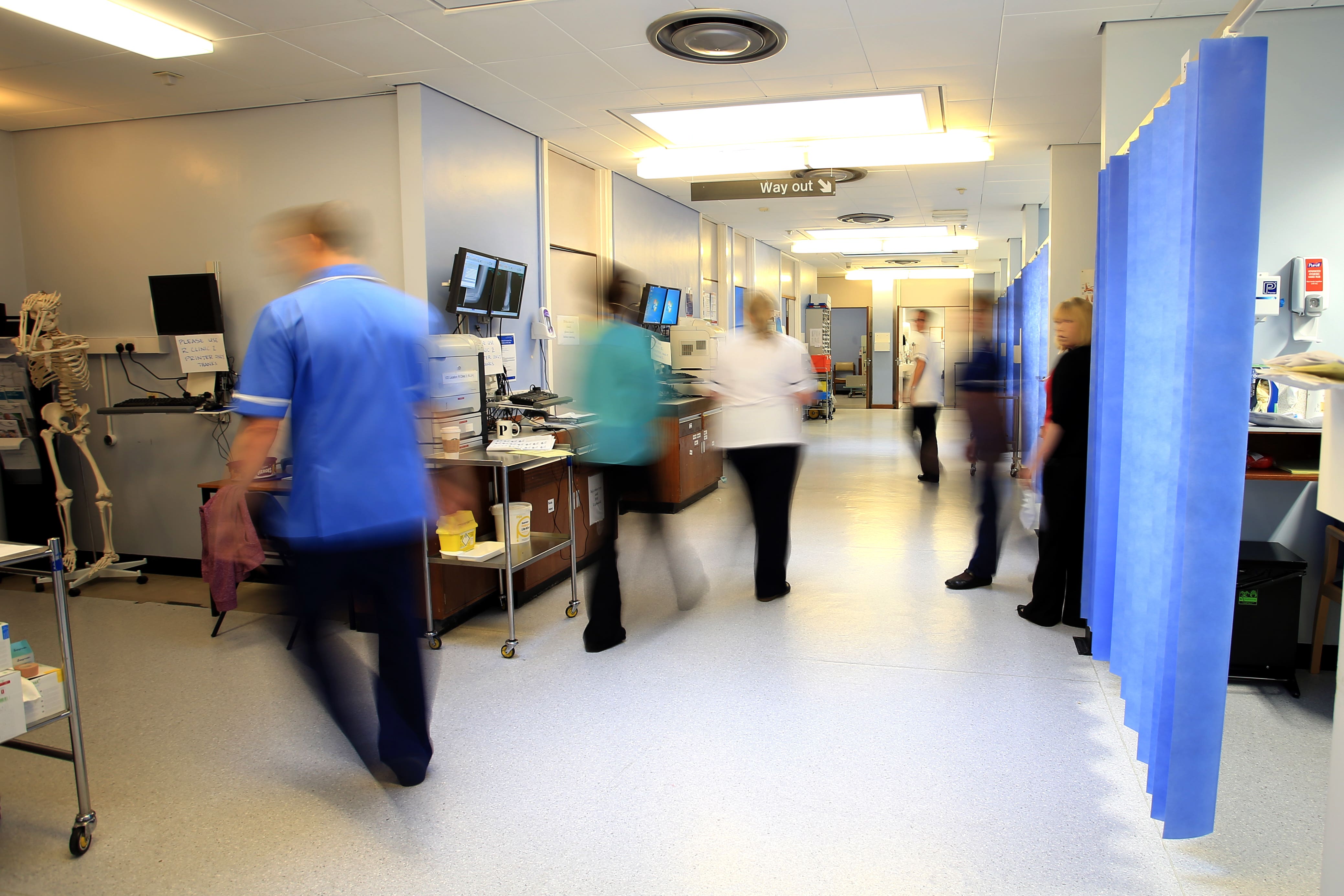NHS has ‘foot on the gas’ in effort to meet key cancer target, MPs told
Dame Cally Palmer, national cancer director at NHS England said the numbers are heading in the right direction but admitted there is a way to go.

Your support helps us to tell the story
From reproductive rights to climate change to Big Tech, The Independent is on the ground when the story is developing. Whether it's investigating the financials of Elon Musk's pro-Trump PAC or producing our latest documentary, 'The A Word', which shines a light on the American women fighting for reproductive rights, we know how important it is to parse out the facts from the messaging.
At such a critical moment in US history, we need reporters on the ground. Your donation allows us to keep sending journalists to speak to both sides of the story.
The Independent is trusted by Americans across the entire political spectrum. And unlike many other quality news outlets, we choose not to lock Americans out of our reporting and analysis with paywalls. We believe quality journalism should be available to everyone, paid for by those who can afford it.
Your support makes all the difference.The NHS has a “job to do” to meet a key cancer target by March but has its “foot on the gas”, a health boss has said.
In February, NHS England said the number of people waiting more than 62 days from an urgent cancer referral to starting treatment should go back to pre-pandemic levels by March 2023.
At present, just 61.7% of people (the average for 2022/23 so far) get cancer treatment within 62 days, compared with 77.2% before the pandemic.
Dame Cally Palmer, national cancer director at NHS England, said the numbers are heading in the right direction but admitted there is a way to go.
She told MPs on the Health and Social Care Committee: “In terms of the reduction of the 62-day cancer backlog, we are absolutely going in the right direction.
“So that backlog has reduced from a high of around 36,000 down to just under 31,000. Pre-pandemic, it was just over 14,000. So we’ve got a job to do, but we’ve got the foot on the gas.”
She said it was important to put the figures into context, explaining that around 6% of people in the backlog will have cancer while the majority will not.
But she acknowledged that any delay for patients can be worrying.
She said: “If you’re a patient, any wait will make you anxious, quite understandably. So our job is to make sure we streamline patients through as fast and as efficiently as possible whether they have cancer or they don’t have cancer.”
We have very specific plans in place. It's all going in the right direction
Pressed during the session on how confident she is that the March 2023 target will be met, Dame Cally said: “We are working really hard to get there.”
She said there has been a “very significant reduction” since August in people waiting between 29 and 62 days, and those waiting over 62 days.
She added: “So we have very specific plans in place. It’s all going in the right direction.”
The latest data from NHS England released earlier this month showed that, in relation to cancer, the proportion of patients who saw a specialist within two weeks of being referred urgently by their GP had dropped to its lowest level on record.
Some 251,977 urgent cancer referrals were made by GPs in September, down from 255,055 the previous month but the highest number recorded for the month of September.
However, only 72.6% of patients in England had a first consultant appointment within two weeks that month against a 93% target, the worst performance on record.
Dame Cally told the committee she was not in a position to say whether a 10-year cancer plan would be delivered by the Government but said the health service is already implementing its NHS long-term plan.
In February, the then health and social care secretary Sajid Javid launched a call for evidence to underpin a 10-year cancer plan for England.
Asked if she felt there needed to be a 10-year plan for cancer, Dame Cally said: “I think there needs to be sustained investment and prioritisation of cancer, yes.”
Asked if she was getting direction from ministers that a 10-year plan will be delivered, she said: “At this point I can’t answer that. I mean, I think there’s been obviously a recent change of Secretary of State and what I do know is that there’s a continued interest, which I’m very grateful for, in the transformation of cancer services with investment behind it, which is what we’re doing with the long-term plan.
Professor Peter Johnson, national clinical director for cancer at NHS England, told MPs during Wednesday’s hearing: “I think it’s important to have a cancer plan and we have a cancer plan. Whether it needs refreshing at this point, I think is a matter for the Government rather than us.”
The Department of Health and Social Care said it would be setting out further information on the 10-year cancer plan “in due course”.